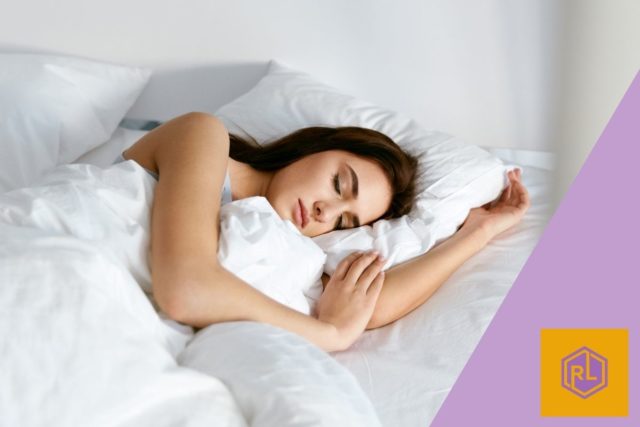What do you consider to be a good or a bad night’s sleep? Do you feel that you are getting enough sleep generally? If not, then what can you do about it?
Did you know that the average night’s sleep has diminished from 9 hours, 20 years ago, to a mere 7 hours now?
This may seem an acceptable night’s sleep for most, but that equates to 730 lost hours, or a whole month’s worth of sleep, every year!
Losing sleep can have huge implications on our health, as bedtime is a time dedicated to cell and body repair, recovery and bacterial culling.
When the sun rises, the increase in light stimulates the light receptors in the skin and brain (hypothalamus) via the retina in the eye. The hypothalamus then starts a cascade of hormones that stimulate the adrenal glands to release cortisol (our stress or energy hormone), Levels of cortisol reach their peak at around 6-8 am in the morning, which should wake us up, refreshed and full of energy for the day ahead.
However, since the discovery of fire, and the invention of the light bulb, we became the only animal on the planet with the ability to control light.
Ideally, we should be going to bed shortly after sunset, when our cortisol levels are low, which allows an increase in melatonin (the sleep hormone derived from serotonin). This night-day cycle is referred to as our Circadian rhythm. Of course, in reality, going to bed as soon as it gets dark is an impossible task as we still have so much to fit into our day. In fact, many people are still working till late into the evening. Getting enough sleep can prove difficult – how do you fit it all in?
The bright lights of a TV screen late in the evening can mimic daylight and convince the body it’s summer and it’s time to insulate the body in preparation for winter. Winter insulation comes in the form of body fat!
That is why we often get that sweet craving when sat in front of the TV after dinner. The bright lights from the TV have tricked your body into thinking that if there is light late at night it must be summer and time to fatten up. There is nothing better than sugar for doing this job! It is no coincidence that TV commercials broadcast during this time are often for sugar-rich foods.
Overstimulating cortisol late at night can hinder sleep and render your adrenal glands depleted for the morning shift, creating a vicious circle of not sleeping at night and being tired all day…
Tips for Getting Enough Sleep
The following can help:
- Create a natural winding down process before bedtime. Watching late TV (or even reading late-night emails or social media) can trick your brain into thinking the bright light in front of you is daylight and that you should be awake.
- Sleep in complete darkness, or as close as possible. Even the smallest amount of light in the bedroom can disrupt your circadian rhythm and your pineal gland’s production of melatonin and serotonin.
- Avoid bedtime snacks….particularly grains and sugars. This will raise your blood sugar and inhibit sleep. Later when blood sugar drops too low (hypoglycemia) you might also wake up
- Read something light. This will help you to relax. Don’t read anything too stimulating, such as a mystery or suspense novel, as this may have the opposite effect.
- Keep a diary. If you often lie in bed with your mind racing it can be helpful to keep a diary and write your thoughts down before bed
- Get to bed as early as possible. Our systems, particularly the adrenals, do the majority of their recovery and recharging during the hours between 11 pm and 1 am
- Rid your bedroom of electromagnetic fields. Mobile phones, wifi, and even alarm clocks can produce electromagnetic fields in the room and disrupt your production of melatonin and serotonin, which are essential for a good night’s sleep
- Eat some magnesium-rich protein (white meat, nuts) several hours before bed. This can provide the L-tryptophan needed to produce melatonin and serotonin
- Avoid alcohol. Although it will make you drowsy the effect is short-lived and you will often wake up a few hours later unable to fall back to sleep. Alcohol will prevent you from falling into the deeper stages of sleep when the body does most of its healing
- Put your work away at least one hour (preferably two hours) before bed. This will give your mind a chance to unwind so you can go to sleep feeling calm, not hyped up or anxious about tomorrow
Do you find it easy to get to sleep? Please share what works for you

Rachel Law is a personal fitness trainer based in New Malden, Surrey. Qualifications: ActivIQ Level 3 Personal Training; Burrell Education Pregnancy Exercise Prescription; Burrell Education Advanced Pregnancy Wellness Practitioner; Burrell Education Advanced Post Natal Exercise Prescription; Burrell Education 3rd Age Women Optimal Health and Nutrition; Burrell Education Peri Natal Athlete; Burrell Education Pelvic Flow and Freedom; Olympic Weight Lifting; Premier Global Kettlebells; FIE Level Assessment and Mentoring

